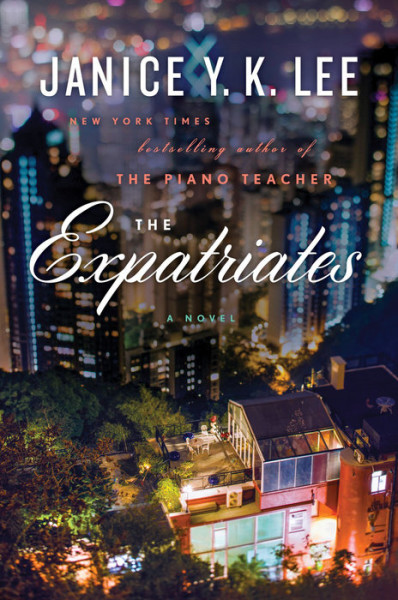 The Expatriates, Janice Lee’s long-awaited second novel, poignantly captures the lives of three American women in Hong Kong. Transplanted into a new locale, they struggle with some of the cliched tropes (seeking escape, finding meaning) but also with some unexpected ones.
The Expatriates, Janice Lee’s long-awaited second novel, poignantly captures the lives of three American women in Hong Kong. Transplanted into a new locale, they struggle with some of the cliched tropes (seeking escape, finding meaning) but also with some unexpected ones.
What do you when you’re the one responsible for a catastrophe? Who do you become? This is Mercy’s crisis, a young Korean American Columbia graduate hoping to make a new life in Hong Kong sees her life unraveling while working as a nanny. Margaret, mother to a lost child, can no longer find meaning or balance. And Hilary, a woman whose marriage has become preoccupied with trying to have a child…
Told from the alternating perspectives of these three women, Lee’s novel follows a whirlwind of emotional ups and downs through the world of women. The world of expats is a place where they hold a certain different status, different challenges and limitations. I found the opening pages to be the kind you could miss a subway stop reading.
The first lines establish much:
The new expatriates arrive practically on the hour, every day of the week. They get off Cathay Pacific flights from New York, BA from London, Garuda from Jakarta, ANA from Tokyo, carrying briefcases, carrying Louis Vuitton handbags, carrying babies and bottles, carrying exhaustion and excitement and frustration….They are thrilled, they are homesick, they are scared, they are relieved to have arrived in New York.
Here is the world these characters operate within–they tread on well-traveled patterns. The irony of course, is that by focusing on the very things that make expatriates expatriates (which is to say not local and noticeably apart), the novel limits itself to that narrow sliver of Hong Kong. The non-expat is a rare almost non-existent occurrence. But at the same time, it is Lee’s biting commentary and lucid reflection of the cyclical, repetitive nature of expat life that were so compelling.
The second half, however, I found less compelling as the character story’s are neatly intertwined into one another. The end, meant to be satisfying, felt a bit too clean. It is the more messy nature of these women’s lives that makes their stories interesting to explore and live in for three hundred odd pages, brought to life in Lee’s flowing prose.








